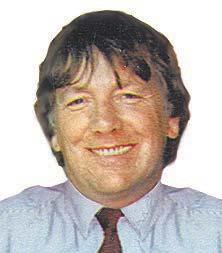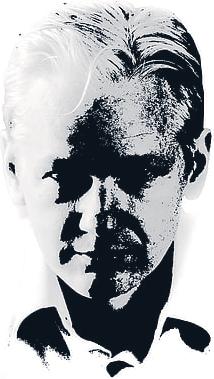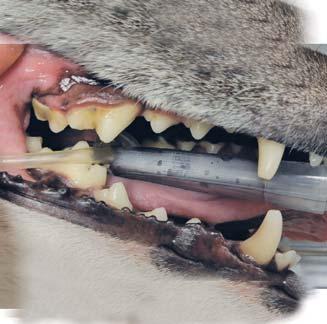
8 minute read
If only Assange was a Kiwi
As an Australian, I’ve always felt somewhat inspired by New Zealand’s rugged independence and forward thinking.
In 1840, the Treaty of Waitangi was signed, and while it is not a treaty as recognised by international law (according to the Brooklyn Journal of International Law), it’s a step Australia is yet to take.
A bit later, in 1893, New Zealand became the first country in the world to grant all women the right to vote. Aussies were the second country to do that in 1902.
In the late 1890s, NZ turned down an offer to join the Australian Federation, and instead became an independent Dominion in 1907.
Why be at the apron strings of another colony?
Over the years, New Zealanders have shown themselves to be courageous in the face of powerful interests, namely the US.
Unlike Aussies, they have taken a principled stand against the war/ death industry. Since 1984, NZ has been a nuclear free zone.
US nuclear-powered ships are not allowed to dock. The sinking of the Greenpeace ship Rainbow Warrior by the French in 1985 demonstrated the price of nation state independence.
Fast forward to last week, and US Secretary of State, Antony Blinken, was in NZ. A joint press conference was held – the transcript is at www.state.gov.
Obligatory motherhood statements were made, such as ‘shared vision’, ‘tremendous friend’, and ‘advancing economic engagement’.
When Blinken was asked about NZ’s interest in the trilateral security pact between Australia, the United Kingdom, and the United States (AUKUS), he said the door was open for NZ to join.
www.echo.net.au
Phone: 02 6684 1777
Editorial/news: editor@echo.net.au
Advertising: adcopy@echo.net.au
Office: 64 McGoughans Lane, Mullumbimby NSW 2482
General Manager Simon Haslam
Editor Hans Lovejoy
Deputy Editor Aslan Shand
Photographer Jeff Dawson
Advertising Manager Anna Coelho
Production Manager Ziggi Browning
Foreign Affairs Minister, Nanaia Mahuta, then said what Australia should say – she said no thanks.
She said, ‘New Zealand is not prepared to compromise or change our nuclear framework position’.
In the same week, Blinken was also in Australia, and the contrast couldn’t be wider, as Labor MPs and the PM revelled shamelessly in the US death-cult-militaryindustrial-complex.
Highlighting our unhealthy US military relationship, former Labor leader, Bob Carr, wrote in the SMH of the US submarine deal, ‘Australia will make the largest transfer of wealth ever made outside this country. This $368 billion is a whopping subsidy to American naval shipyards, and to the troubled, chronically tardy British naval builder BAE Systems’.
Local federal Labor MP, Justine Elliot, supports this madness.
Also this week, SMH reported that, ‘Australia is set to begin manufacturing its own missiles within two years’.
Meanwhile, federal Labor have been trying to convince the yanks to release imprisoned Aussie journalist, Julian Assange.
Yet Blinken dismissed the request. According to www. theguardian.com, he told reporters Assange ‘risked very serious harm to our national security’.
What would the Kiwis do if Assange was one of theirs?
They seem to know that ‘real friends’ don’t just lay down and get walked all over.
It’s an unhealthy relationship if you do whatever you are told to do, yet federal Labor is doing just that.
Thankfully, NZ is an example of a nation that looks after the interests of its citizens.
Hans Lovejoy, editor
It could be coming sooner than we think, thanks to AI.
As we all know, plastic pollution is absolutely everywhere – in the soil, oceans, rivers and the air. It’s in all of us. This has happened within my lifetime.
Young people today don’t know a world without plastic.
When I was a child, there were no plastic bottles, no plastic bags, no plastic clothes, no food wrapped in plastic.
The baker came to our door with a wicker basket and loaves wrapped in white tissue paper.
The horse that drew his van waited patiently in the street, eating occasionally from a chaff bag hanging from a harness and breathing clouds of steam into the cool air.
The milkman delivered bottles of milk and picked up empties for washing and reusing. You could see from scratches on the sides of bottles that they had been used multiple times.
When my mother went shopping, she took a basket and fresh fruit and vegetables were put in paper bags, cheese was cut off a large block and wrapped in greaseproof paper. There was no supermarket with thousands of plastic-wrapped items.
Five years after Vance Packard wrote The Waste Makers, in 1960, on how the rapid growth of disposable consumer products was degrading the environment, society and the economy of the USA, I experienced what he was writing about, in a New York skyscraper.
My cousin took me for a meal in a cafeteria.
We took a tray each and picked up utensils and plates of food. After we’d finished, I wondered where we’d put the plates, cups and knives and forks for washing.
She opened a chute and said, ‘Tip it all down there.’ I was aghast enough for that memory to stay with me for nearly sixty years.
Zoom forward half a century, and Vance Packard’s nightmare has
The Byron Shire Echo
Volume 38 #08August 2, 2023
Established 1986• 24,500 copies every week
The Echo acknowledges the people of the Bundjalung nation as the traditional custodians of this land and extends respect to elders past, present and future.
Disclaimer: The Echo is committed to providing a voice for our whole community. The views of advertisers, letter writers, and opinion writers are not necessarily those of the owners or staff of this publication.
Nicholas Shand 1948–1996


Founding Editor
‘Plastic is not going away. It’s in almost every gadget we use as well as “fast fashion” clothes, but there’s safe alternatives’.
Richard Jones
‘The job of a newspaper is to comfort the afflicted and afflict the comfortable.’
– Finley Peter Dunne 1867–1936 become reality. The entire planet is littered with apparently intractable waste.
Shoppers have been dutifully taking their soft plastic to supermarkets in the expectation it would be recycled.
That promise was soon broken, and now we have giant piles of soft plastic in bales sitting in warehouses all over the country. What is going to happen with it?
Thirty years ago, when I was in NSW Parliament, I sat on a committee enquiring into waste.
We had many witnesses come before us including local heads of companies producing significant waste – Coca Cola, paper manufacturer Bowater-Scott and others.
I asked each one in turn if their company would take ‘cradle-tograve’ responsibility for their waste.
Everyone said no, except Coca Cola. For them, it was comparatively easier, but imagine BowaterScott having to take responsibility for millions of soiled plastic nappies now rotting in landfills.
On a parliamentary tour visiting Milan, I asked the head of Pirelli if his company would take back and process their used tyres.
He was driving us around at the time and almost swerved off the road in shock.
Not all companies are as unresponsive as that. After the first Clean Up event at Sydney Harbour in January 1989, organised by Ian Kiernan, I took several bags of expanded polystyrene waste, much of it emblazoned with McDonald’s golden arches, to their HQ at Pennant Hills and met with their vice president.
He asked, ‘What can we use instead?’ ‘Cardboard boxes,’ I replied. They changed their packaging. If only corporations were that responsive today.
Have you checked your pet’s teeth lately?
Flip up your dogs’ and cats’ lips. If they look like this doggy (or worse), then it’s time for dental care.

Take advantage of the August dental month special prices! Call North Coast Vets now to book in your free dental check.
The plastics industry is pushing for incineration under the deceptive guise of ‘waste to energy’ but no community wants it. Landfill is being used but it’s hardly an answer.
Plastic is not going away.
It’s in almost every gadget we use as well as ‘fast fashion’ clothes, but there’s a growing movement to find climate-safe alternatives.
The plastic industry has announced it intends quadrupling output by 2050.
This would inevitably have a catastrophic effect, as currently almost all plastic is made from fossil fuels.
This is where AI comes in.
Scientists around the world are already using it to great effect to determine which enzymes can be harnessed to break down an enormous variety of plastics safely into harmless component parts for reuse.
Enzymes could prove to be a major part of the solution to eat through the 250 million tonnes of plastic waste produced globally every year.
Those mountains of waste plastic could be reused to make new plastic at a lower cost than using new gas and oil. The companies that create the waste must be made to pay to solve the problem and not just pass it on to the community.
We need legislation to levy producers and importers at a high enough rate to bring about rapid change.
The stranglehold the fossil fuel industry has on this government must be broken.
Richard Jones is a former NSW MLC, and is now a ceramicist.
Hey Byron Shire Council (BSC), I see people are still complaining about some roads with potholes in the Shire, so why don’t you just close those roads like you did with South Beach Road at Brunswick? Because that will totally make the problem go away, right?
M Morgan Mullumbimby Writers at the Rails
Sad to report that Byron’s iconic poetry event, Writers at the Rails, will not be part of this year’s Byron Writers Festival.
After 30 years the Rails management has decided not to continue with the event which started as a monthly show in August 1992. Over the decades scores of local, visiting and international poets and writers have graced the Rails stage with their poetics.
I’d like to thank Tom Mooney who was a great supporter of the spoken word at the Rails, and the many writers and poetry lovers who helped to create such a special event. Performance poetry will be part of the festival with a new show, Wordworks, at the Bangalow Bowling Club at 2pm on Sunday 13 August, a free event with new and visiting poets most welcome.
David Hallett Nimbin
After months of roadworks in the Lennox village – which are still happening – Ballina Council has added yet another traffic impediment. This ‘temporary’ roundabout at the northern turnoff to Lennox has caused considerable holdups and frustrations.
A big ‘F’ for fail to Ballina Council for this and another to Councillor Ramsay for suggesting it. Where was the community consultation?
Lennox people are Fed up with ineFFicient, Feeble, Feckless and Frustrating traffic management.
K Lavender Lennox Head
Thick and thin
Are we prepared for a shocking fire season? Is everybody ready to spot the first wisp of smoke in the trees? The undergrowth is thick and our defences are thin.
Who do we ring – 000, the local fire station, or both? We must act fast to stop explosive bushfires taking hold of our forests.
Are we organised? Are our communications reliable and timely? Are we ready for an emergency at 3am?
Maybe we need large community meetings soon, to plan, clarify and explain responses. Let’s get ready! Sapoty Brook
Main Arm
Tackling autobesity

What happened to people making choices to suit their own circumstances?
Why not criticise caravans, delivery vans, motor homes for restricting vision while driving?
Science in the Pub: Improving Habitat in aChanging climate
What can you do to build a climate resilient landscape? We’ll answer yourquestions about which plants provide the best opportunities to support our animals, insects and birds in a changing climate and highlight some of the amazing work in our Shire by Landcarers and partners.
Just because you don’t agree with another person’s choice, you wish to criticise a person’s penis?
What about women who own these SUVs, why only criticise males?
Then you bring France into the argument over parking expenses.
That sounds as intelligent as city dwellers telling people in the regions that they should only be allowed to buy a battery car and that diesel-powered vehicles should be taxed out of existence.
Why not criticise city people for owning big houses, or living in high rise apartments with high carbon footprints etc?
Of course, you are probably one of them.
Glen Wright Ballina
Home
One would think that after the Royal Commission into









